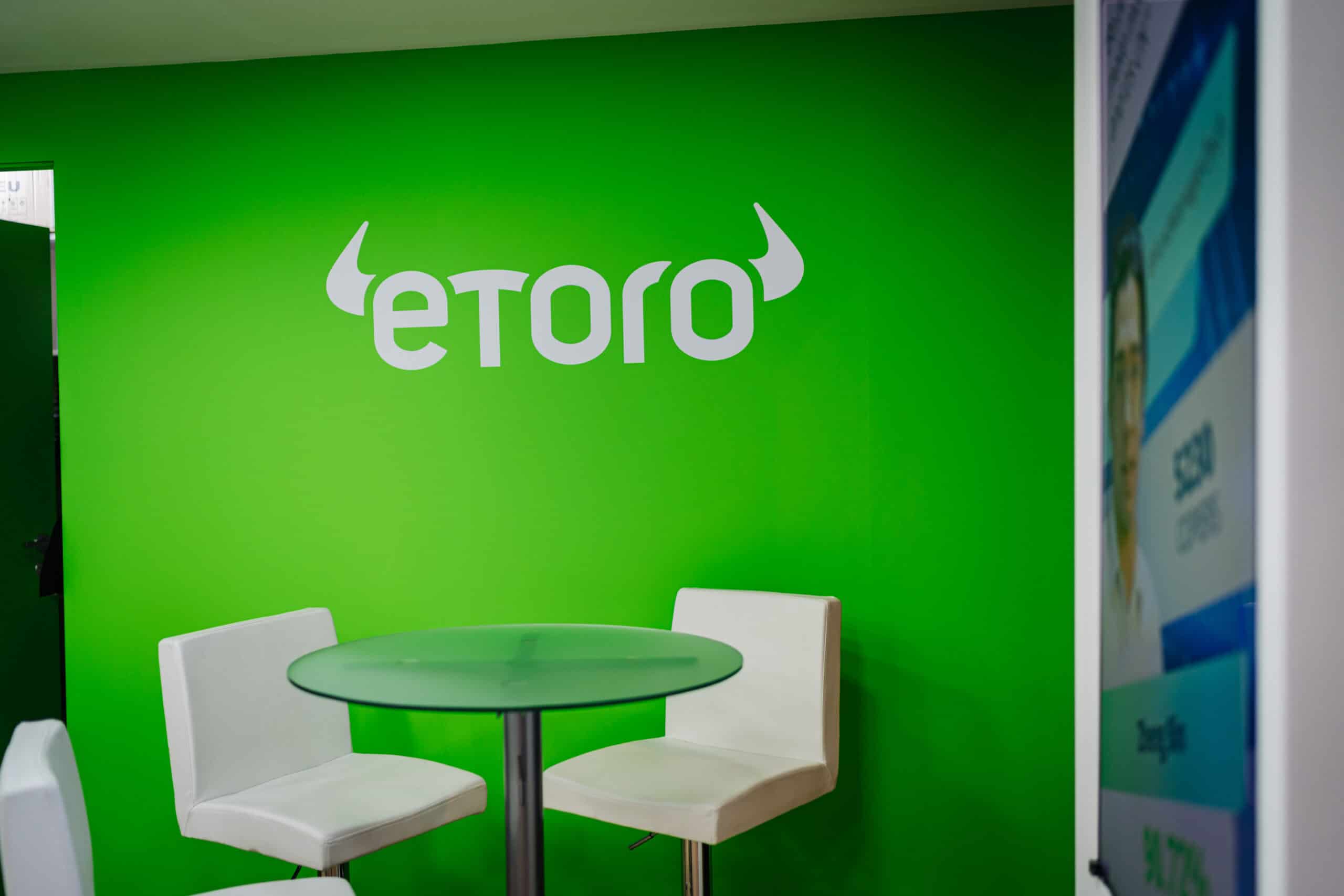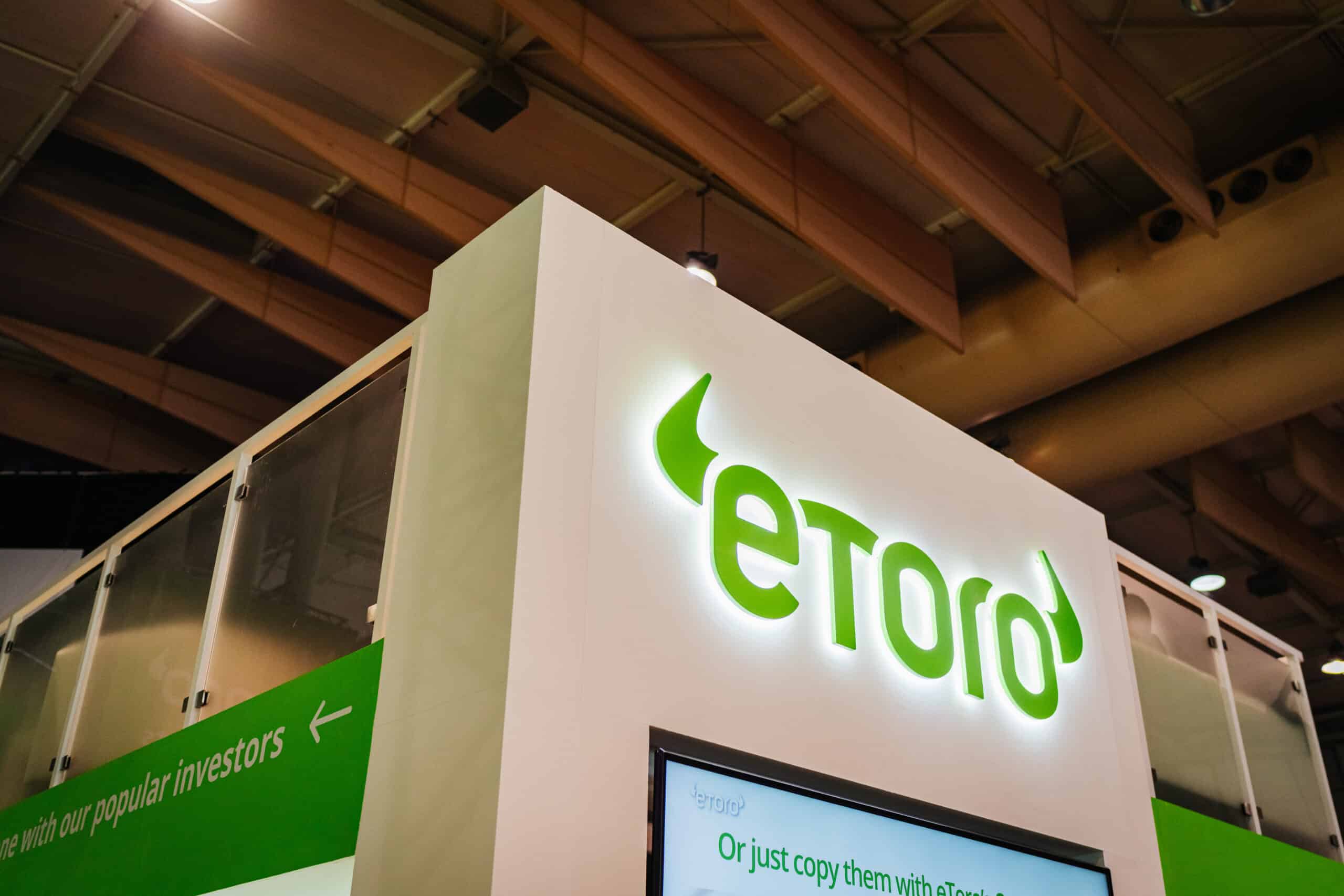
It’s hard to keep track of all the digital money management, cryptocurrency, and investment platforms. Even after you learn all there is to know, which ones should you use? Should you use any at all? Many of the apps offer overlapping services and integrated ecosystems, some are essential for some online activities, while others just make managing your money easier.
If you feel pressured to use one of these apps or feel like you’ve missed the money train, you’re not alone. But don’t let that pressure force you into a decision you’ll regret. Any time spent on researching the different apps is time well spent, and your wallet will thank you.
That being said, you might have heard a lot about eToro and Coinbase, depending on who you are and where you live, but are they right for you? How are they different, and what services are unique to each service? We looked into both. Here is our analysis of eToro vs. Coinbase.
What is eToro?

eToro is a private, digital-first trading platform based in Israel that allows users to participate in zero-commission stock trading, among other services. One of the most attractive features of eToro is their CopyTrader program which allows any user to copy the trades of any other trader in real time, as long as those stocks are available on the eToro platform.
Like other online trading companies, eToro has a clean, easy-to-use interface and provides plenty of information, up-to-date stats and analyses, and guides on how to trade smart and effectively.
eToro is available around the world and allows access to 20 global stock markets along with cryptocurrencies, a social trading network, news feeds, an upgradable eToro Club account, and more.
In addition to stock and crypto trades, eToro also offers eToro Money, which is a separate money management app that allows users to deposit funds fee-free from their eToro trading account or a bank account and send and receive money with friends. eToro Money also includes a crypto wallet for users to want a secure and easy way to manage their owned cryptocurrencies. As you will see, when comparing eToro to Coinbase, it will make sense to include the crypto wallet feature of eToro and only compare the cryptocurrency aspect of eToro.
What is Coinbase?

Coinbase is a public, digital-first, remote-first (meaning they have no physical headquarters) cryptocurrency exchange platform. It is the biggest cryptocurrency exchange in North America.
Coinbase only trades and manages cryptocurrencies and digital assets, not traditional stocks and other products.
Along with their primary trading app, Coinbase also offers Coinbase Pro for professional digital asset traders, Coinbase Wallet which allows users to access, store, and manage their cryptocurrencies, Coinbase Card that allows customers to spend their cryptocurrencies, Coinbase Earn which allows users to earn small amounts of crypto coins by watching videos or completing quizzes, and more.
Coinbase vs. eToro: What Are The Differences?

If you’re comparing Coinbase and eToro, you’re probably more interested in trading or using cryptocurrency than traditional stocks. So, we will compare only the features that can be directly compared regarding cryptocurrencies and digital assets.
What can you buy on each app? There are around 80 cryptocurrencies available on eToro, though the number available changes from country to country. Coinbase offers hundreds of cryptocurrencies of many different types.
Coinbase also offers hundreds of crypto-to-crypto trading while eToro offers none. You can transfer money into your eToro account with a bank transfer or a debit card only, while Coinbase allows you to fund your account with wire transfers, bank transfers, debit cards, and PayPal.
What are the fees for trading on each app? eToro charges a flat 1% fee for buying or selling cryptocurrencies and a 2% fee to transfer your currencies to your eToro Money crypto Wallet. while Coinbase charges variable fees whether you buy or sell in simple trades with additional fees for more complicated trades and lower fees for higher volume trades. These fees come to around 0.05%–0.60% for purchase orders and 0%–0.4% for sell orders. Other fees apply to different actions you can take with your cryptocurrencies, we encourage you to research the differences and applicable fees based on what you plan to do with your digital assets.
What are the differences between their crypto wallets? While you don’t need a crypto wallet to trade in cryptocurrency, if you want a safe way to store your coins for later or use them, you will need a crypto wallet. Both eToro and Coinbase offer wallets or you can choose to use your own or another wallet service. You can transfer other coins into your Coinbase wallet, but any coins you transfer away from your eToro wallet can’t be transferred back into it. Additionally, Coinbase offers interest on some cryptocurrencies and additional protections for your digital assets.
Coinbase Wallet allows users to explore the decentralized web and activate security features if they are more active in using and trading cryptocurrencies. Users can also learn more about cryptocurrency while earning small amounts of coins at the same time.
What support do they offer? As of 2024, eToro offers basic ticket and email support for regular customers, and chat and phone support for members of eToro Club. Coinbase offers email, online chat, and phone support for all customers.
What other features do they offer? Naturally, each crypto wallet is seamlessly integrated with the larger trading platform, offering features available to users who use the larger ecosystem. eToro offers users a $100,000 demo account so they can practice trades without worrying about losing actual money. You can buy and store NFTs and other digital assets with Coinbase.
If you have more niche interests in cryptocurrency, Coinbase offers a more tailored and in-depth crypto marketplace than almost any other digital platform.
What resources are available for first-time traders? Both eToro and Coinbase offer extensive and in-depth education for new and experienced users. eToro offers guides, articles, and videos for traditional trading as well as crypto trading. Coinbase offers similar resources for just cryptocurrencies, but it does go more in-depth with the wide variety of coins and digital assets available. If you have a very specific question about a digital asset or blockchain offering, Coinbase will more likely have what you need.
Which App Should You Choose?

There are two questions you should answer if you want to decide which app you want to choose between eToro and Coinbase: do you use any of their other digital products (and are you happy with them?), and how active do you want to be in trading cryptocurrencies?
If you already use eToro for your stock trades and enjoy your experience, you might want to stick with the eToro ecosystem and expand into its cryptocurrency options. You can buy and sell crypto on your existing eToro account already.
On the other hand, if you want to become a serious, professional cryptocurrency trader, or be an expert in all things crypto, there are not many options better than Coinbase. The broad range of cryptocurrencies, digital assets, and NFTs available, along with additional tools, resources, and functionality make it the better option for anyone who wants to do more than just buy and sell digital currencies.
We encourage you to thoughtfully research both platforms, keeping in mind your personal financial goals and limits. You should not trade in any asset just because those around you are doing it. Never invest more money into cryptocurrency than you are willing to lose. There is no guarantee (especially with digital assets) that their value will continue into tomorrow. The good thing is, accounts with both services are free, and if you regret your decision you can transfer your compatible assets to the other option, usually with minimal fees.
If you’re curious about any other part of eToro’s products and services, check out this page: a regularly updated list of all our eToro guides, news coverage, and lists of benefits.
It’s Your Money, Your Future—Own It (sponsor)
Are you ahead, or behind on retirement? For families with more than $500,000 saved for retirement, finding a financial advisor who puts your interest first can be the difference, and today it’s easier than ever. SmartAsset’s free tool matches you with up to three fiduciary financial advisors who serve your area in minutes. Each advisor has been carefully vetted and must act in your best interests. Start your search now.
If you’ve saved and built a substantial nest egg for you and your family, don’t delay; get started right here and help your retirement dreams become a retirement reality.
Thank you for reading! Have some feedback for us?
Contact the 24/7 Wall St. editorial team.





